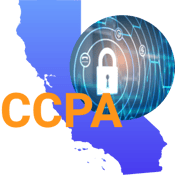GDPR is a European Union regulation created to reform, modernize, and harmonize European data protection law throughout the EU and is fully enforceable. The changes in data privacy and protection resulting from GDPR significantly impact the collection, processing, and data retention in all European Union member states.
"Personal data" refers to any information relating to an identified or identifiable natural person ('Data Subject'); an identifiable person can be identified, directly or indirectly, by reference to an identification number or one or more factors specific to physical, physiological, mental, economic, cultural or social identity. Under GDPR, the definition of personal data is expanded to include persistent identifiers, pseudonymous data, and restricted data such as health, race, and government information.
Consumer rights under GDPR include:
Right to be Informed: The controller must provide data subjects confirmation as to whether personal data concerning them is being processed, where and for what purpose.
Right of Access: Individuals have the right to access and receive a copy of their data.
Right to Rectification: Individuals have the right to correct inaccurate or incomplete data.
Right to Erasure: The right to be forgotten entitles the data subject to have the data controller erase their data, cease further dissemination of the data, and potentially have third parties halt data processing.
Right to Restrict Processing: Individuals have the right to restrict processing under certain conditions—for example, unlawful data processing or while a right-to-rectification or a right-to-object action is pending review.
Data Portability: A data subject's right to receive personal data concerning them, which they have previously provided in a 'commonly used and machine-readable format.' In addition, the data subject has the right to request the transmission of their data to another controller.
Right to Object: Individuals have the right to restrict the use of personal data in certain circumstances, for example, to stop personal data from being used for direct marketing.
Automated Decision Making and Profiling: Individuals have the right to restrict automated decision-making, including profiling. The automated decision-making is allowed where it is necessary to perform the service, lawful and based on explicit consent.
Other GDPR requirements include:
Transparency: Privacy policies and notices must be clear, concise, transparent, and in an easily accessible form to justify the use of a data subject's data and data minimization.
Under GDPR, organizations found in breach can be fined up to 4% of their annual global turnover or €20 Million (whichever is greater). The private right of legal action for GDPR breaches enables individuals or groups (e.g., consumer advocacy groups) to sue organizations for failure to meet the requirements set forth under GDPR.
.png) Are you considering a security program for your organization? We work with clients just like you to implement a modern and reliable security program. Read our security program guide to learn what goes into a security program, who needs to be involved, and more to ensure long-term success.Learn More
Are you considering a security program for your organization? We work with clients just like you to implement a modern and reliable security program. Read our security program guide to learn what goes into a security program, who needs to be involved, and more to ensure long-term success.Learn More



